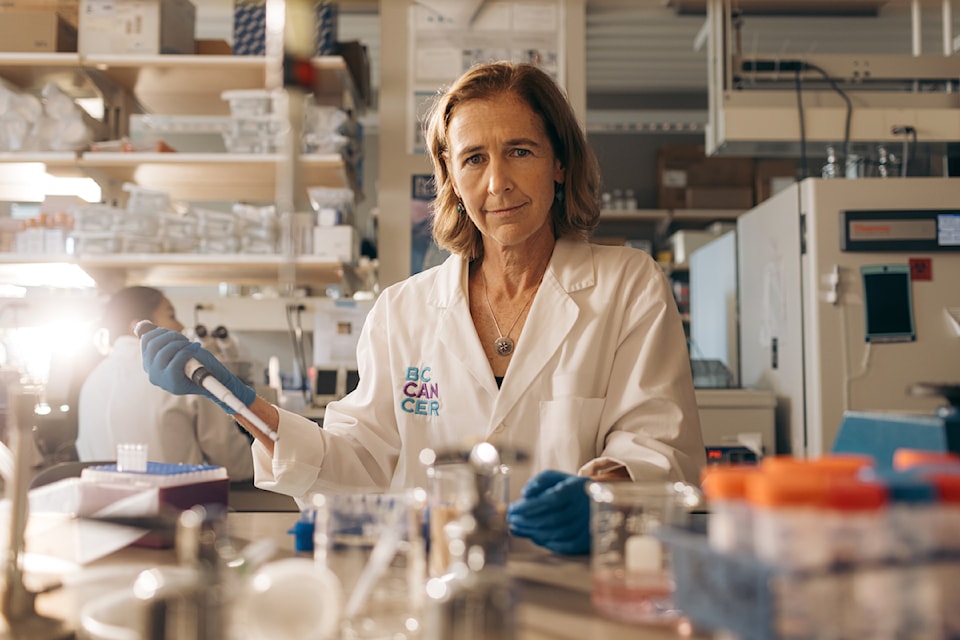Science
AI Technology Set to Transform Women’s Cancer Care in Victoria

An innovative artificial intelligence (AI) system developed by researchers in British Columbia is on the verge of revolutionizing women’s cancer care in Victoria. This technology targets endometrial cancer, the sixth most common cancer among women, and aims to enhance its diagnosis and treatment.
Dr. Jessica McAlpine and Dr. Ali Bashashati, prominent figures at BC Cancer and the University of British Columbia (UBC), have pioneered a method that categorizes endometrial cancer into four distinct groups. Each group presents varying clinical outcomes, addressing the challenge posed by the cancer’s often ambiguous cellular characteristics, which can lead to inconsistent diagnoses. This inconsistency complicates treatment decisions for healthcare providers.
A significant advancement in this research is the AI ProMisE test, which allows researchers to analyze tumor images and identify features that may elude traditional pathology methods. “We were able to look at these images of tumours and identify things that the pathologist couldn’t see and that the molecular tools couldn’t identify,” said McAlpine. The AI system can pinpoint patients who may appear to have favorable prognoses but are, in fact, at greater risk of poor outcomes. This capability empowers doctors to recommend more intensive treatments to prevent cancer recurrence.
Additionally, the application of this AI technology has the potential to reduce unnecessary treatments for some patients, allowing them to avoid the adverse effects of chemotherapy and radiation. “Because of the tools we now have, some patients can avoid the toxicity of chemotherapy and radiation altogether,” McAlpine noted. The implementation of these AI tools, which require specialized scanners and hardware, could see a pilot program launched in Victoria within the next year, contingent on securing philanthropic funding and necessary approvals.
Victoria is a prime candidate for this pilot, according to McAlpine, who emphasized the city’s strong research community and collaboration with local oncologists. Dr. Brad Nelson, recently appointed as the Immunotherapy Research Chair with BC Cancer in Victoria, has expressed a personal commitment to advancing research in women’s cancers, an area he described as historically underfunded. His connection to the issue is poignant; his late wife, Joyce Deeley, passed away from ovarian cancer in 2001. In her memory, the Trev & Joyce Deeley Research Centre in Victoria was named following a generous donation of $5 million in 2003.
William Litchfield, associate vice president of the BC Cancer Foundation for Vancouver Island, highlighted the critical importance of this research. “Gynecological cancers are some of the most difficult cancers to treat and historically are an understudied area of cancer research,” he stated, emphasizing the potential impact on patients across British Columbia.
The announcement of this groundbreaking research coincides with Gynecological Cancer Awareness Month in September, underscoring the urgency of improving women’s cancer care. McAlpine believes that the advancements in AI are just the beginning. “There are so many other applications we’re also looking at,” she remarked. “[AI tools] offer a more personalized or precision approach. You’re not treating everybody the same.”
As this promising technology progresses, the hope is that it will not only enhance the accuracy of diagnoses but also improve treatment outcomes for women facing endometrial cancer, ultimately saving lives in Victoria and beyond.
-

 Politics4 weeks ago
Politics4 weeks agoSecwepemc First Nation Seeks Aboriginal Title Over Kamloops Area
-

 World5 months ago
World5 months agoScientists Unearth Ancient Antarctic Ice to Unlock Climate Secrets
-

 Entertainment5 months ago
Entertainment5 months agoTrump and McCormick to Announce $70 Billion Energy Investments
-

 Science5 months ago
Science5 months agoFour Astronauts Return to Earth After International Space Station Mission
-

 Lifestyle5 months ago
Lifestyle5 months agoTransLink Launches Food Truck Program to Boost Revenue in Vancouver
-

 Technology3 months ago
Technology3 months agoApple Notes Enhances Functionality with Markdown Support in macOS 26
-

 Lifestyle3 months ago
Lifestyle3 months agoManitoba’s Burger Champion Shines Again Amid Dining Innovations
-

 Top Stories2 months ago
Top Stories2 months agoUrgent Update: Fatal Crash on Highway 99 Claims Life of Pitt Meadows Man
-

 Politics4 months ago
Politics4 months agoUkrainian Tennis Star Elina Svitolina Faces Death Threats Online
-

 Sports5 months ago
Sports5 months agoSearch Underway for Missing Hunter Amid Hokkaido Bear Emergency
-

 Politics5 months ago
Politics5 months agoCarney Engages First Nations Leaders at Development Law Summit
-

 Technology5 months ago
Technology5 months agoFrosthaven Launches Early Access on July 31, 2025




















